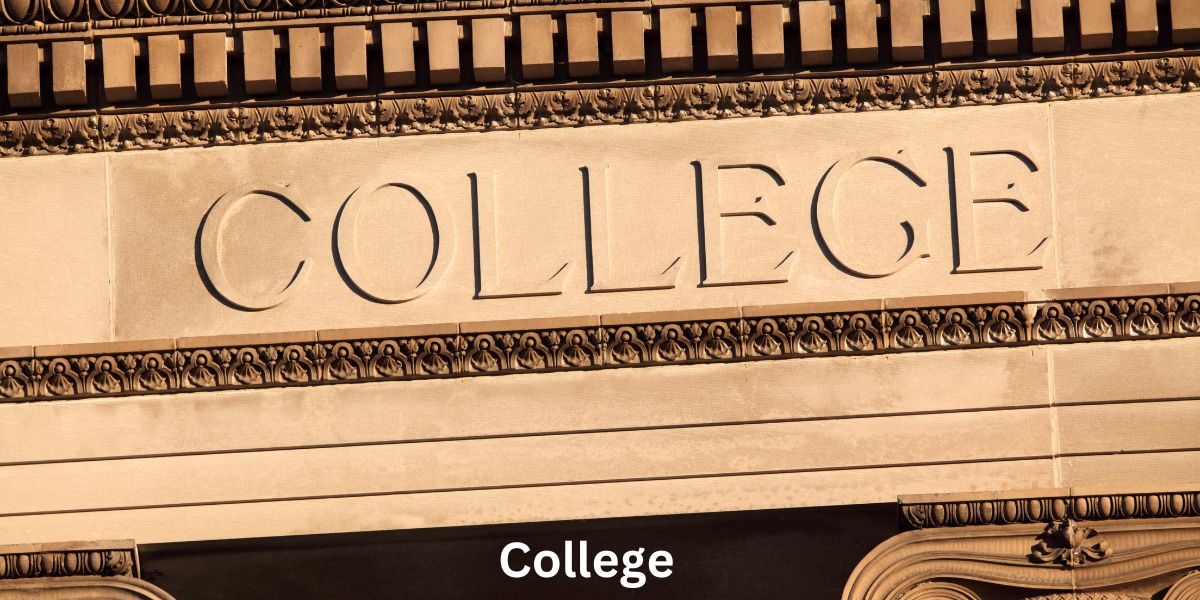Choosing the right college is one of the most important decisions for aspiring educators. After all, the quality of your training directly impacts how you’ll shape young minds in the future. If you’re looking for the best education major colleges, this guide will help you navigate your options and choose a program that aligns with your goals, values, and vision for teaching.
Why Picking the Right Education College Matters
A career in education is more than just a job—it’s a calling. Teachers inspire, guide, and empower students to reach their potential. But becoming an effective educator requires more than passion; it requires excellent training.
The college you choose for your education degree plays a crucial role in equipping you with the tools, methods, and confidence needed to succeed in the classroom. From cutting-edge teaching techniques to hands-on student teaching opportunities, the right program ensures you graduate ready to lead.
What Makes a Great Education College?
1. Comprehensive Curricula Tailored for Modern Classrooms
The best education major colleges offer programs that go beyond theory. They prepare you to tackle real-world challenges, such as:
- Incorporating technology into lessons.
- Managing diverse classrooms with students of varying abilities.
- Understanding current educational policies and practices.
Top programs often let students specialize in areas like early childhood education, special education, or STEM-focused teaching.
2. Robust Student Teaching Programs
Hands-on experience is critical for aspiring educators. The best colleges prioritize practical training through partnerships with local schools, giving students opportunities to practice teaching under the mentorship of experienced professionals.
3. Accreditation and Reputation
Accreditation from organizations like the Council for the Accreditation of Educator Preparation (CAEP) ensures that a program meets high standards for teacher preparation. Additionally, colleges with strong reputations often have extensive alumni networks that can open doors to job placements and mentorship.
The Best Education Major Colleges in the U.S.
1. Vanderbilt University (Peabody College of Education and Human Development)
Vanderbilt consistently ranks among the best education colleges. Peabody College is known for its focus on evidence-based teaching practices and cutting-edge research.
- Why it stands out: Exceptional faculty-to-student ratio and strong funding for educational research.
- Programs offered: Early childhood, elementary education, special education, and more.
2. University of Michigan (School of Education)
The University of Michigan boasts a top-tier program with a strong emphasis on equity and inclusion in education.
- Why it stands out: Offers urban teaching initiatives and partnerships with diverse school districts.
- Programs offered: Secondary education, curriculum development, and educational leadership.
3. Teachers College, Columbia University
Located in the heart of New York City, Teachers College is renowned for its emphasis on educational innovation and global teaching methods.
- Why it stands out: Access to diverse teaching environments and a focus on educational psychology.
- Programs offered: Teaching and curriculum, TESOL, and education policy.
4. Stanford University (Graduate School of Education)
Stanford’s education program is geared toward students who want to make a large-scale impact in education, from classroom teaching to policymaking.
- Why it stands out: Combines strong academic training with technology-driven teaching methods.
- Programs offered: Learning design, international education, and teacher leadership.
5. University of Virginia (Curry School of Education and Human Development)
The Curry School offers a balanced blend of research opportunities and practical training, making it one of the best choices for aspiring teachers.
- Why it stands out: Known for innovative classroom techniques and leadership development.
- Programs offered: Elementary education, special education, and counseling.
Key Factors to Consider When Choosing Your College
1. Program Specializations
Do you want to teach elementary school, middle school, or high school? Are you passionate about special education or bilingual instruction? Choose a program with strengths in your preferred area of focus.
2. Location and Teaching Opportunities
Colleges located in urban or high-demand teaching areas often offer more diverse student-teaching experiences. For example, schools in metropolitan areas may expose you to a wider variety of classroom settings and demographics.
3. Financial Aid and Scholarships
Teaching programs can be costly, but many colleges offer scholarships specifically for education majors. Research options such as federal TEACH Grants, which support students committing to teaching in high-need areas.
4. Alumni Support and Job Placement
A strong alumni network can significantly ease your transition into the workforce. Look for colleges with high placement rates and robust career services.
Frequently Asked Questions About Education Colleges
What’s the difference between a B.A. and a B.S. in education?
- A B.A. in Education often includes a broader liberal arts focus, preparing students for subjects like English or history.
- A B.S. in Education typically emphasizes science and technical subjects, catering to future math, science, or technology teachers.
Do I need a master’s degree to teach?
In most states, a bachelor’s degree is sufficient to start teaching. However, some states require a master’s degree after you begin your teaching career, especially for leadership roles or specialty areas.
What are the most in-demand teaching fields?
Special education, STEM (science, technology, engineering, and math), and English as a second language (ESL) are among the most sought-after teaching specialties.
How to Stand Out as an Education Major
- Gain Early Classroom Experience
Volunteer at local schools or tutor students to get hands-on experience even before starting your teaching program. - Build Strong Relationships with Faculty
Your professors can be invaluable resources for guidance, research opportunities, and job recommendations. - Stay Updated on Trends in Education
Subscribe to education journals and attend workshops to learn about the latest teaching methods and policies. - Develop Soft Skills
Beyond academic training, focus on developing patience, adaptability, and strong communication skills—critical for managing classrooms effectively.
The Path Ahead: Your Role in Shaping the Future
Choosing the best education major college isn’t just about where you’ll spend the next four years—it’s about laying the foundation for a career that impacts lives for generations. Whether you aspire to teach in an urban school district, work internationally, or become a leader in education policy, the right college can make all the difference.
Take the next step today: research the programs mentioned above, visit campuses, and connect with current students or alumni. With the right preparation and passion, you’ll not only find the perfect college but also become the kind of teacher every student remembers for a lifetime.



